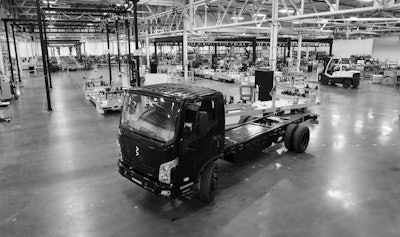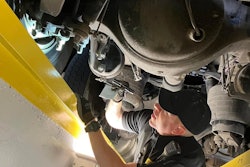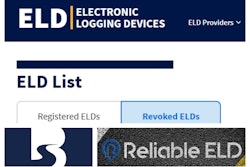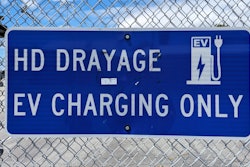Trucking news and briefs for Friday, Aug. 23, 2024:
Washington state truckers to governor: ‘Washington is not California’
The Washington State Trucking Associations (WTA) this month penned a letter to Gov. Jay Inslee and the state’s legislature asking them to reconsider aligning with California’s Advanced Clean Trucks (ACT) regulation, which sets sales requirements for zero emissions (ZEV) trucks within the state, requiring an escalating percentage of trucks sold there to be ZEVs.
In a detailed letter to Inslee, WTA President and CEO Sheri Call outlined numerous economic, operational, infrastructure and competitiveness concerns over the policy.
“We feel these issues will place constraints on the industry and reduce supply chain resiliency in Washington state -- one of the most trade-driven states in the nation,” Call wrote. “We don’t have to look back too far to understand the impact of shortages of goods and medical supplies during the pandemic as a result of trucking industry labor and equipment shortages. Imagine the negative impact to affordability in our state and to any environmental gains if trucks are dispatched to Washington from further away. This is a reality we are faced with under the ACT policy.”
[Related: Trucking to EPA: Send CARB 'back to drawing board' for its ZEV truck-purchase mandates]
Beginning next year, 7% of Class 7-8 trucks sold in Washington must be ZEVs, increasing annually up to 40% by 2032 and beyond. “However, given that the buying cycle for trucks can be as long as two years, owners are placing orders for model year 2025 and beyond today,” the letter said, meaning fleets “are already experiencing the consequences of ACT mandates right now, prompting WTA members to evaluate their options given cost and infrastructure constraints.”
Call added that “California officials wrote, adopted, and implemented the ACT program for the state of California. But Washington is not California.”
The letter goes on to outline concerns about costs, payload, range, refueling, and infrastructure.
For now, Washington fleet and truck owners will likely keep older, less efficient trucks longer to avoid the higher costs and uncertainty from purchasing ZEV M/HD trucks, Call noted. Delaying these purchases will also trickle down into the secondary truck market, affecting the drayage fleet the most. Others will go out of business or pick up operations and move into neighboring states that have not adopted California’s ACT mandates.
“However fleet and truck owners respond, these direct and indirect compliance costs will certainly shift to consumers across the entire supply chain,” Call said. “There is no such thing as a free lunch, and ACT will drive up costs on every consumer good or service that relies on M/HD commercial trucks.”
[Related: California dealers struggle to withstand CARB sales regulations]
Perdue Transportation confirms driver layoffs
Perdue Transportation, the private fleet of Perdue Farms, confirmed to CCJ this week that it has laid off approximately 30 drivers from its fleet of approximately 476 drivers.
A company spokesperson said the layoffs equate to “less than 1% of the total Perdue Farms workforce,” adding that the company is “constantly reviewing our business to ensure we are operating as effectively and efficiently as possible.”
The spokesperson noted that a workforce reduction decision, “affecting our associates and their families, is something we take very seriously, and one that was not made lightly.”
Perdue confirmed the layoffs “will not impact our ability to meet the needs of consumers and customers. We remain committed to providing the highest level of service to our customers and consumers and the quality products they expect from Perdue. There are no further workforce reduction plans.” –Alex Lockie
Electric truck manufacturer Bollinger beginning production next month
 Bollinger will begin production on its B4 Chassis Cab in September.Bollinger Motors
Bollinger will begin production on its B4 Chassis Cab in September.Bollinger Motors
Bollinger Motors will begin production of its electric B4 Chassis Cab on Sept. 16, the company announced Aug. 21.
The Bollinger B4 Chassis Cab, an all-new Class 4 commercial truck, was designed from the ground up with extensive fleet and upfitter input. Bollinger Motors' unique, purpose-built EV chassis design encloses and protects the 158-kwh battery pack and components to offer unparalleled capability and safety in the commercial market, the company said.
Bollinger is partnering on production with Roush Industries, which provides contract manufacturing services from its facility in Livonia, Michigan.
"This is an exciting time in Bollinger Motors' history, as it takes a monumental team effort to go from true start-up to production in the timeframe we have achieved," said Bollinger President and Chief Operating Officer Bryan Chambers. "The Bollinger Motors team, Roush Industries and our entire supply chain network has worked tirelessly to make the B4 a reality and I am very proud of everyone's effort."
The production date announcement comes on the heels of several other important Bollinger Motors milestones, including providing a full warranty coverage of the B4 Chassis Cab; receiving the Certificate of Conformity from the Environmental Protection Agency; a 70-vehicle sale to Doering Fleet Management; an 80-vehicle sale to Momentum Group; a 50-vehicle sale to EnviroCharge; the addition of Nacarato Truck Centers, Nuss Truck & Equipment, and LaFontaine Automotive Group as dealers and service centers; and more.
In addition, Bollinger Motors recently qualified for federal clean vehicle tax credits under the Inflation Reduction Act of $40,000 per vehicle for the B4 chassis cab.












